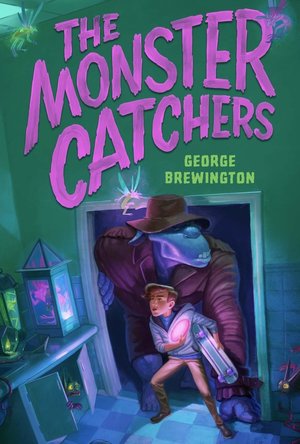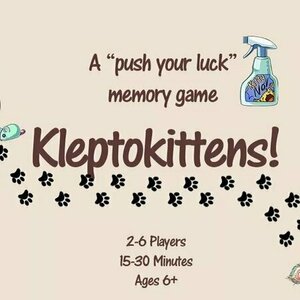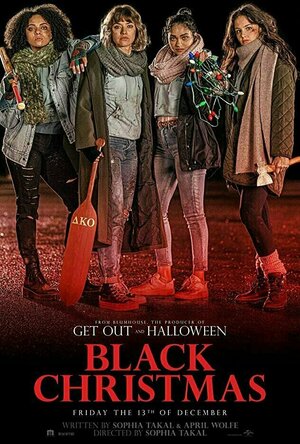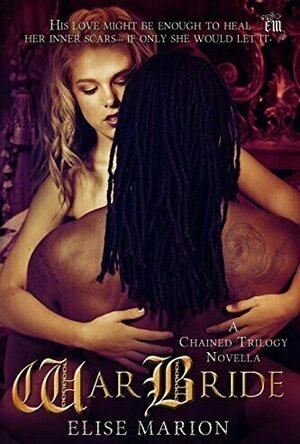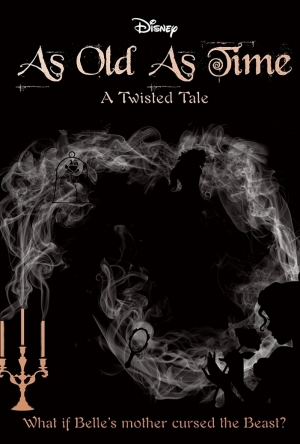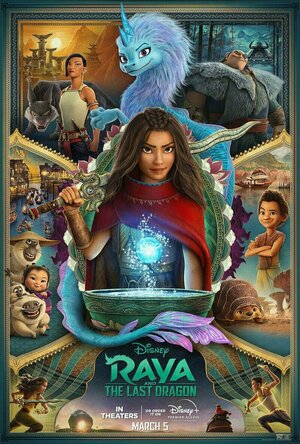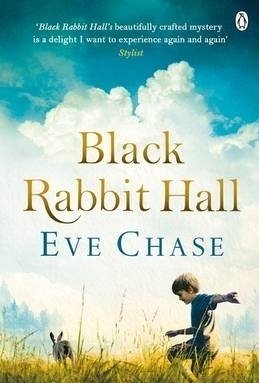
Black Rabbit Hall
Book
One golden family. One fateful summer. Four lives changed forever. Amber Alton knows that the hours...
Becs (244 KP) rated Monster Catchers in Books
Jul 6, 2019
Thank you to Smith Publicity and the author, George Brewington, for allowing me the wonderful opportunity to be a part of the Monster Catchers blog tour and for sending me a copy to read and review.
TRIGGER WARNINGS: death, kidnapping
"We can't always think of ourselves. There are so many creatures in the world that need love."
Main Characters:
Bailey Buckleby - the main character and co-owner of Buckleby and Sons. He's a monster catcher like his father, but questions how his father goes about the business. Very compassionate and has a good Frisbee throwing arm.
Dougie Buckleby - Bailey's father and the owner of Buckleby and Sons. He has taught Bailey everything he knows about being a monster catcher. A bit selfish by not really listening to Bailey, even though he always ends up being right.
Savannah - schoolmate of Bailey's turned friend. A part of the Bullhead Brigade, which Nikos is also a part of.
Henry - baby Swiss troll that is taken in by Dougie. But is he?
Candycane Boom - a loan shark that ends up teaming up with Axel Pazuzu. Later become an alley to Bailey, Savannah, and Nikos.
Nikos - a Minotaur that is hired to take down Bailey and his father but after being beaten, he joins forces.
Axel Pazuzu - a cynocephaly (part human, part dog that is a god). Known for scamming people worse than Candycane Boom. Ends up causing a lot of problems for Bailey, Savannah, and Dougie.
"Sometimes passion makes one do really, really stupid things. You mustn't beat yourself up about it."
Review:
**Possible spoilers ahead**
Monster Catchers is a middle grade novel about friendship, adventure, sacrifices, saving the ones you love, with a hint of romance and drama. It starts with Bailey sitting at the register in the family shop, rereading In the Shadows of Monsters by his favorite monster catcher. Some teenage boys come in looking for trouble, but Bailey scares them off by showing them the monitor that shows the back room. This very back room is where the real business of Buckleby and Sons take place: monster catching.
Soon after the group of teenage boys leave, a customer comes in needing to have a 'pest' taken care of. Once the Buckleby's are hired, Candycane Boom comes in looking for another fairy friend for his current fairy. He picks on out while Bailey walks Henry on Whalefat Beach. This is where the two meet Axel Pazuzu a cynocephaly, which is a half human, half dog god creature. Axel tries buying Henry from Bailey, but he refuses because he doesn't want to loose this best friend. Bailey quickly heads home with Henry before Axel tries stealing Henry away.
That night, Dougie and Bailey head out to the customer's home to catch the little rascal that has been stealing all of the lights. Well, things don't go according to plane and instead of catching just one little goblin, they catch two and encounter about ten others. This doesn't turn out for Dougie as one of the goblins bites his finger off!
After they returned home, Bailey fell asleep. The next morning, he headed to school to give the report that was due but that he wasn't ready for. So he improvised and told about one of the real stories from In the Shadow of Monsters. Now, the thing with people within Monster Catchers, is that they don't believe that the monsters are real. They are in a constant denial, even when they've seen the monsters themselves. This sparks some major debate in Bailey's class.
Savannah ends up following Bailey back to the store where she is introduced to all the monsters in the back room and even eventually meets Axel Pazuzu when they head to the beach to walk Henry. Axel hires Candycane to get Henry from the Buckleby's. Well, this causes a bunch of different action packed scenes that will leave you turning the pages until the ending.
When you think monsters, you don't think of a father-son duo saving California. But that's just what Dougie and Bailey Buckleby do. For the right price, they will capture anything from goblins and trolls to harpies and fairies. If it's a monster of any sort, the Buckleby's are the one's to call. But, Bailey soon finds out that his father has been lying to him all of his life and it must be he who saves the people of the world. Monster Catcher is a fast-paced, action-packed adventure that will capture young hearts everywhere.
Character/ Story background and development -
I was generally surprised at how much development was within this little novel. Especially for it being book one in a series and a debut! Bailey's and his fathers development were some of the best. The two go from best buds to Bailey questioning everything about him to having to sacrifice him for the sake of the world. It just blew me away the relationship that the duo had as they were massively different, but brought very similar aspects to the relationship.
Plot -
George Brewington weaves lessons of friendship, morals, and action into this fantasy filled debut. Bailey's interest in monsters is heartwarming, especially when he finds out that monsters have feelings and all aren't bad like they are perceived to be.
Spelling/ Grammatical errors -
I honestly didn't seem to find any spelling or grammatical errors that popped out or took away from the overall story. Monster Catchers is a very well-written novel.
Enjoyment -
I really enjoyed going on an adventure with Bailey and all the lovable monsters. I will most defiantly be rereading this. One thing I rather enjoyed, that I have to point out, is how George Brewington mixed extremely important world issues like: environmental issues, understanding differences, and sacrifices along with adding that fantasy aspect that is common among middle-grade novels.
Overall -
With the interwoven lessons and morals, the fun and quirky lines, the cliff hangers, discovering oneself, understanding differences, Monster Catchers encourages the reader to think beyond the words that are written.
Do I recommend? -
Yes! I highly recommend The Monster Catchers by George Brewington. It was such a cute little novel and I need more!!
"We either try or die, Bailey Boy."
Purple Phoenix Games (2266 KP) rated Kleptokittens! in Tabletop Games
Jun 21, 2021
Disclaimer: We were provided with a Tabletop Simulator version of this game for the purposes of this preview. The images below are screenshots from my plays. The components may not be finalized and could change after a successful Kickstarter campaign. -L
Kleptokittens! is a memory game of push your luck in which players are trying to amass the most points over the course of 5 rounds. Setup is simple – shuffle the deck of cards, and then lay them out face-down in a grid. Each player receives a Stash player mat, and the point tokens are set off to the side. Grab a timer, choose a starting player, and you are good to go!
On your turn, you will have 30 seconds to flip over cards and match as many pairs as possible. If you turn over a match, leave them face-up, and continue flipping cards. If the 2 cards you revealed do not match, flip them back face-down and keep looking for a pair. At the end of the 30 seconds, count up the number of matches you found, and take as many treasure tokens to your Stash. The game then moves to the next player, the cards are reset (either flipped back facedown, or shuffled and placed anew for an added challenge) and the game continues until all players have had a turn. That signifies the end of the first round. A new round commences as before, and the game keeps going until 5 rounds have been completed. The player who has amassed the most treasure tokens is named the winner!
Seems simple enough, right? Well, there are a couple of twists. If, at any point in your turn, you reveal a Spray Bottle, your turn immediately ends, regardless of how much time is remaining on your timer. You will then only score your last match made, and any previous matches this turn are lost! How much are you willing to push your luck to make matches? Or should you play it safe and quit while you’re ahead? It’s ultimately up to you! Conversely, you could also flip over a Catnip card. Catnip cards are collected to your Stash and are score multipliers at the end of the game! Put your memory to the test, and see how far you are willing to push your luck in hopes of coming out victorious.
At its core, Kleptokittens! is a matching/memory game, and the gameplay is pretty straightforward. The Spray Bottle and Catnip cards add that small element of push your luck that really helps elevate it beyond a simple matching game. You’ve got 3 matches – should you risk going for a 4th, and thus take the lead? Or should you play it safe, since you can’t remember exactly where you last saw that Spray Bottle card? There are some real stakes in this game, and that keeps the gameplay engaging for everyone. Another great thing about Kleptokittens? It’s really accessible for younger gamers! Matching and memory games are great for development in children. And it’s not every day that you find a game fun for adults that can also be played by the littles. The gameplay can be tailored to the group as well. Got a bunch of junior gamers? Maybe take out the Spray Bottle and Catnip cards for now and extend that timer to 1 full minute. Playing with a bunch of adult friends? Try re-shuffling the deck after every player so nobody can rely on the previous player’s grid for their memory of card placements. You can play this game with just about anyone, and that is the sign of a good game to me.
As mentioned earlier, this was a Tabletop Simulator version of the game, so I can’t really talk too much about component quality. I will say however that the art style is cute and fun, and matches the lighthearted feel of the game. The digital version of the game looks great, and I can’t wait to see how the physical version turns out!
Overall, I think that Kleptokittens! is a fun little filler game. A memory/matching game isn’t that novel these days, but the addition of the push your luck element makes for a unique gameplay that feels fun and fresh. The theme is cute, the gameplay is straightforward and simple to understand, and it can be played with gamers of all ages – so what’s not to love? If you’re in the market for something light and fun, I would recommend checking out Kleptokittens! It hits Kickstarter on June 23, 2021, so be sure to snatch it up like kittens snatch up little treasures in this game!
Darren (1599 KP) rated Black Christmas (2019) in Movies
Dec 13, 2019
Story: Black Christmas starts as we meet our sorority sisters Riley (Poots), Kris (Shannon), Marty (Donoghue), Jesse (O’Grady), Helena (Adams) and Fran (Morris) who are preparing for the Christmas break, with Riley having history with the alpha sorority, which never got dealt with by the authorities.
They decide to get revenge through song and soon find themselves getting picked of by a masked killer, where they need to find themselves fighting to survive.
Thoughts on Black Christmas
Characters – Riley is previously a victim of sexual assault by one of the rich college students, 3-years-later she is still dealing with the effects, being the big sister to the rest of the sisters and is one of the few that worries about the locations of the other girls. Kris has been on a crusade to get equality, she spends most of the time preaching about how men have it easy and mostly gets annoying. Marty is another member of the sorority and like Jesse, we don’t learn much more about any of the other girls.
Performances – Imogen Poots is a talent actress when she is given something to work with, she is the strongest of a weak story, where nobody comes off like they are giving a good acting performance.
Story – The story is meant to be following a group of sorority sisters that get picked off and attacked by a masked killer over the Christmas break. Well, where do we start to break this story down, first thing, this isn’t any sort of remake or sequel to either movie seen before, it uses the location of the house and one look at a death, don’t think this is a remake. Secondly, we spend more time trying to get the message over about men thinking they can walk all over women and the only good men in life are nervous wrecks around the women. Thirdly, this is meant to be a horror and doesn’t even know what tone to stick to. Finally, the trailer gives away everything. This is a social message that uses an existing horror franchise to try and get a point over, without using any sort of subtitle approach.
Horror/Mystery – The horror in this film is almost non-excitant, it tries to use the slow slasher traits early on, which show glimpses, only to go, ‘you know what, we want to do an action horror now’ by the end. The mystery is also poor, because we get zero potential suspects and the only person it could be is revealed in the trailer.
Settings – The college location is fine, though it is the weird college I have ever seen.
Special Effects – When it comes to the effects, we get basic horror ones, sadly, the film decides to hide away from showing any actual gore, even though the injuries are designed to show it.
Scene of the Movie – Nate grabs an axe.
That Moment That Annoyed Me – The girls leave a party at what they say is midnight, we cut to one that left early and it is suddenly 10.45, seriously can people not tell the time?
Final Thoughts – This is a very bad social message horror that spends more time banging you over the head with the message, than actually giving us a coherent story or any scare.
Overall: Social Message, without a scare.

Wallpaper Plus - Cool Wallpapers, Cool Backgrounds
Entertainment and Lifestyle
App
Beautiful, Quirky, Funny, Kitschy - whatever you need. Only Wallpaper App with 100,000+ awesome...

Pet Monitor
Lifestyle and Utilities
App
Monitor your dog or cat while away from home. Use noise and motion alerts to know when your dog is...
Kara Skinner (332 KP) rated War Bride in Books
Sep 10, 2019
Goodreads rating: 3.7 out of 5 stars
My rating: 4.5 out of 5 stars
I’m going to earn your trust, Emery Toustain, he thought as he released her hand. Perhaps, if you let me, I’ll earn more than that.
The first time I read War Bride was several months ago. It was so good I actually missed a call from my boss because I was so busy reading it. No, really. I didn’t even “ignore” the call. The fact that my phone was ringing didn’t even register because I was so absorbed in the book. I ended up finishing it in less than a day.
I just finished it for the second time today, and it’s still incredible.
Emery Calliot kicks ass.
Emery will never be like other noble ladies. She always preferred wearing men’s clothing to dresses and learning archery to needlepoint. She has a tendency to ramble when she’s nervous and she can’t tame her hair for the life of her. But she had always wanted to marry eventually.
That is, until the night of King Rowan’s Treason, when she had been unspeakably hurt beyond repair. Now the idea of marriage makes her blood curdle.
But with the peace treaty between Dinasdale and Daleria shaky as it is, she doesn’t have any choice but to marry Dinasdalian lord, Leofred Toustain, a man she’s never met before, who looks terrifies her.
Yes, he was quite magnificent with skin like polished ebony and glittering eyes akin to chunks of onyx. Hawkish features were made more prominent by the absence of the beard most Dinasdalian men favored. His sharp jaw, slashing cheekbones, and arrogant nose made his hooded eyes darker and more mysterious. Leofred was beautiful in the way a panther might be—nice to look upon from a distance, but quite frightening up close.
Leofred isn’t looking forward to marriage any more than his bride-to-be is. He had always hoped marry for love, not someone had never met before. But he sees his new bride as a challenge, and he’s determined to break through her barriers and make her trust him.
“Nonsense. Everyone is capable of love. Right now, you are not capable of physical intimacy, but that is only a small part of what love between a man and a woman is. For the nonce, I would be happy if you would let me become your husband in other ways. Let me be your confidant and your friend. Let me hold your hand when we walk, and tell you I think you’re beautiful every day. Let me prove to you just how capable of love you are, and when you are ready, I will show you how beautiful making love will be between us. Only when you are ready, Emery. Not before.”
Leofred is incredibly sexy, and completely perfect for Emery. He’s gentle, nice, and very patient with her, which is exactly what she needs. They have a great story and the dialog between them is fantastic.
Before the wedding yesterday, I took the liberty of procuring a lady’s maid for you. However, if you want, I will send her away.”
“No, don’t do that. Please, send her in. As you can see, I need the help.”
He smiled at her again. “No, you don’t.”
The only thing I didn’t like was how he dealt with Caden at the beginning of the book. Caden knows what happened with Emery and wanted to warn Leofred to be patient with her. Leofred brushed him off and told him to mind his own business.
Later he blames Caden for his awkward and tense wedding night because Caden didn’t tell him what was wrong with Emery.
Whatever (Caden) knew and would not speak about had ruined his wedding night.
This is a bit of a dick move on Leofred’s part. But this is honestly the only time that he’s not a perfect gentleman. And he never mistreats or disrespects Emery.
I love the Chained series, and War Bride did not disappoint. It’s definitely worth the read.

FreePrints – Photos Delivered
Photo & Video and Shopping
App
Print photos quickly, easily and for FREE! Ordering your free prints couldn’t be easier. Just...
Lottie disney bookworm (1056 KP) rated As Old As Time in Books
Aug 16, 2019
As Old As Time is the retelling of Beauty and the Beast and opens with the familiar story of the enchantress and the young, vain prince that we all know. You can probably still picture the stained-glass scene from the original 1991 movie and the dramatic ballroom scene in the 2017 remake.
Refusing to be eclipsed by these though, Braswell follows the well-known tale with: “It was a very good story. It often entertained the woman who lay in her black hole of a room, manacled to a hard, cold bed.”
Wait! What?
There, with one fell swoop, on the second page, Braswell brings an almost gothic darkness to the fairy tale. Of course, some would say it is already dark: very few people who are cursed to become a beast are particularly jolly about the situation! However, Braswell goes one step further by both revealing the story behind the enchantress and taking us on a journey to discover the ugly truth in the present.
Liz Braswell creates a kingdom where magic and non-magic people have lived together peacefully for years but where politics and a lack of cultural understanding is threatening to tear that apart as les charmantes find themselves persecuted by les naturels. (I can’t imagine where she draws her inspiration from(!))
It is in this kingdom that we meet a young dreamer called Maurice and the enchantress Rosalind, Belle’s mother (nicknamed Rose- so clever!). Maurice is very much a younger version of the character we grew up with: loveable and devoted to his inventions. Rosalind however is much more headstrong and impulsive: even changing her appearance on a whim. Her pride is fierce and we first meet her holding her own against a large man insulting ‘her kind’, calling her unnatural and a child of the devil. The bully soon learns the error of his ways when his nose is replaced by a pig’s snout but a warning runs all the way through this tale: “magic always comes back on itself”.
Maurice and Rosalind’s life is happy and settled at first but they soon start to witness the persecution of les charmantes for themselves. Thus, when the King and Queen call on Rosalind to protect them against the advancing plague, she passionately fights for her people…only to be rejected and turned away. Maurice, always the voice of reason, convinces Rosalind to at least protect the children and servants and so it comes to pass that Rosalind later visits the young prince, on the eve of his coronation, carrying with her the simple gift of a rose.
Braswell’s character development is, as always, impressive. Belle is immediately relatable as the kooky bookworm we know and love: her story running parallel to the film until we, as readers, develop a relationship with her parents. It is then that we discover there is a slight edge to Belle. Although clearly tortured by the fact her mother cursed a 10-year-old boy, Braswell’s Belle is desperate to be adventurous and heroic like the characters in her books but soon realises an adventure is not all it is cracked up to be. Like her mother, Belle can be quite impulsive: grabbing the enchanted rose before the beast can stop her and destroying any chance of breaking the spell. However, she is also quick and cunning, tricking the wardrobe into revealing the curse’s timeline. Nevertheless, the bravery of our protagonist can never be doubted and Belle embarks on one hell of a journey to discover the truth about her family and herself.
Uniquely, within As Old As Time we slowly see side-line characters weave their way into the lives and stories of our characters. Levi and Alaric, for example, are old friends of Maurice and Rosalind and are seemingly insignificant to the story at first. However, Levi is also the godfather to Belle and the village bookseller (“If you like it that much, it’s yours!” – that guy). Alaric on the other hand has a significant link to the castle and both carry clues with them that assist Belle on her quest.
Any Beauty and the Beast tale would not be complete without LeFou and Gaston – that infamous double act- but even Gaston is ever so slightly darker than his animated counterpart. Frederic: another friend from the past and, quite frankly, odd from the start also plays a pivotal role in the story but I won’t spoil the surprise for you!
As Old As Time is true to its name: weaving two stories into its plot at different points in time: the story that we all know and the story of how that came to be. It is an ominous tale with curses, murder, creepy ivy statues and a frankly terrifying tour of the lunatic asylum.
It is not all doom and gloom however; Liz Braswell takes a very tongue-in-cheek attitude towards the infamous scenes within Beauty and the Beast: invoking a dry sense of humour into the story. From a chapter named “Be Our … Oh You Know the Rest” to a direct reference to Stockholm Syndrome: Braswell makes sure that we do not expect her novel to be a copycat, heartfelt tale with a happy ending. Belle even remarks to the Beast that hoping she would fall in love with him within a month or so was wildly unrealistic.
This is very much a novel for the cynical Disney lovers amongst us and highly deserving of its title of a twisted tale!
Charlie Cobra Reviews (1840 KP) rated Raya and the Last Dragon (2021) in Movies
Mar 20, 2021 (Updated Mar 27, 2021)
-------------------------------------------------------
Spoiler Section Review:
I thought this movie was really good but it definitely had a lot of flaws. One of those wasn't the character designs or animation which were looked awesome. Also the voice actors were really good and Awkwafina's performance really surprised me but was understandably one of the better performance's and reminded me of such great comedians who have leant their voices for roles like Robin Williams as Genie in Aladdin and Eddie Murphy as Mushu in Mulan and Donkey in Shrek. I mentioned in the first part of the review that the opening story of the legend of how the dragons saved everyone was a really cool concept I thought worked well into introducing the different tribes and then the main characters. That opening scene of Raya breaking into the orb chamber and training with her father reminded me of a scene from another movie. Not sure if it was Pacific Rim: Uprising where John Boyega's character Jake is stealing something from one of the giant robots or a scene from Indiana Jones but it felt very familiar. Which brings me to another big thing that I didn't like about this movie, which is that most if not all the movie was pretty predictable for me. Which doesn't necessary make it a bad thing or a bad movie but takes some of the fun out of it. One of the things that I didn't predict was how after making friends with Namaari in the beginning of the movie that she would totally backstab Raya the way she did. That was such a gripping and tense moment where Chief Benja had to come to Raya's rescue as the Fang tribe moves in to steal the orb. I really liked the part where he can see in the reflection of his sword that Raya was ready to continue fighting alongside him against all the enemies even when the other tribes came to steal the orb for themselves as well. The character designs and animation were really awesome too. I liked Raya's costume and how she transitioned from what she wore as a child to the time skip as well as the different attire that the different tribes had. I liked how they all were quite different beside just their clothes too, like how Raya's tribe was the Heart and they wore green and blue but their home was the most full of life, with plants and water, the Fang looked more like a city but like a capital militaristic feel to it, with much being about law and order or rule. The spine was more in the colder region and had big people wearing multiple layer clothing for warmth and Tail which little is known about even though it was the first one we're shown because it has been wiped out by the Druun and it is supposed to be a mainly dried up desert region and have small pockets of villages. The last one, Talon was probably one of the most colorful ones and smart in how they dealt with the Druun as well. They built their houses on stilts right on the water and had a huge marketplace where it seemed like a festival or party was going on because there was so many people going on as if there wasn't any danger. Another thing I liked about the movie was how Raya didn't have to have powers and she didn't have to be the rescued princess but instead was a strong capable person on her own. I also liked how it seemed the more the movie went on, she kept adding people to her group/crew on her journey. Kind of like Magnificent Seven. One thing I didn't like was that it never really felt like their were enough stakes along the way. Characters kept making mistakes but nothing bad really happened or mattered for long enough to impact the characters in a bad way. The part that got me the most was in the very beginning scene where the tribes try to steal the orb and it falls and breaks and Chief Benja gets shot by an arrow in the leg and tries his hardest to save Raya from the Druun as they come back and start devouring everyone turning them to stone. I heard a lot of people say that he didn't need to sacrifice himself and throw Raya into the river to save her if he just kept running; and that he probably could have hopped more on the other leg. If you think about it though he probably made it pretty far even though he had that injury and couldn't go on any further. I admit that this part got me a little emotional but for many people that knew it was a Disney movie and not Pixar figured that it didn't mean everyone would stay as stone. I however thought back to the beginning of the film and remember that even the dragons stayed as stone meaning it was possible that these people might never turn back to normal. The other part that got me was also a part I had a hard time with was when Namaari first sees Sisu and then her actions later after she tells her mother. I felt that Sisu should have told her something or vice-versa but I guess she stayed in shock. Also when she told her mother and the mother already knew I really felt like her Mother was the bad guy of the film but when Raya gives Namaari her pendant back and sets up a meeting with her, I really felt like I knew what would happen next. Namaari's mother, Virana would have a bunch of guards show up and it would be a setup and Namaari wouldn't have known about it and it would be a time for her character to redeem herself. Instead Namaari pulls out a crossbow when she sees Raya has all the pieces of the orb and while Sisu tries to talk her down Raya takes a chance to attack Namaari and Sisu gets struck with an arrow and falls into the river to die. I could totally see this happening but what I couldn't predict was that Namaari would blame it all on Raya and say it was all her fault and none of this would of happened if it wasn't for her. This was like the stupidest line in the movie and made no sense to me because Namaari was the one when she was a girl who backstabbed Raya and betrayed her as soon as she found out the location of the orb. So the scene where Raya is super pissed and trying to kill her was very gratifying to me because it made a lot of sense that Raya was mad and didn't care about anything but revenge in that part. Namaari tells her that she's lost everything already and doesn't care, and Raya decides to help her friends with her orb piece. As the pieces start losing power and they are becoming surrounded by the Druun, what doesn't make sense to me is how Raya chooses to put her faith in Namaari and let's herself become consumed by the Druun. Her friends decide to follow her example and do the same and eventually when Namaari is the only one she's able to put the pieces of the orb back together vanquishing the Druun and bringing everyone back to life including Sisu and all the dragons. I don't know to me it just seemed like Namaari was pretty irredeemable after all that she had done and didn't seem like it was a sure thing and this kind of bothered me. It seemed like the movie had a message about wanting to be able to trust people but showed more and more how sometimes you can't so had me pretty mixed about what the movie was really about. Anyways I think I went off a little too long for this review but it's because it was a fun watch for me. So like I said, I give this movie a 7/10 and say it's a really good movie.
https://youtu.be/3So_GFox4-A
